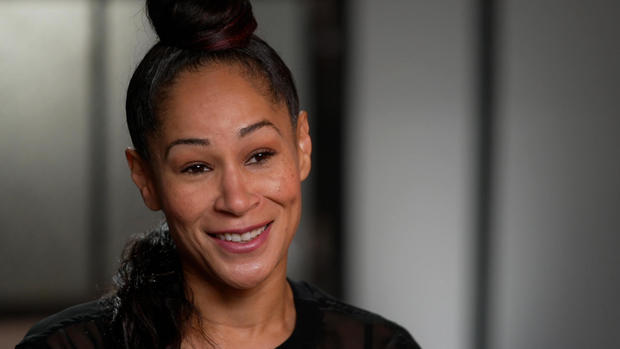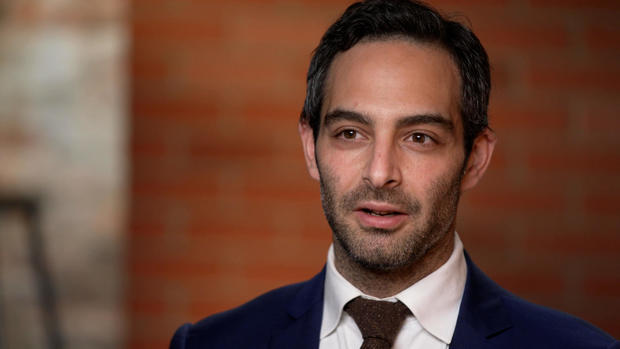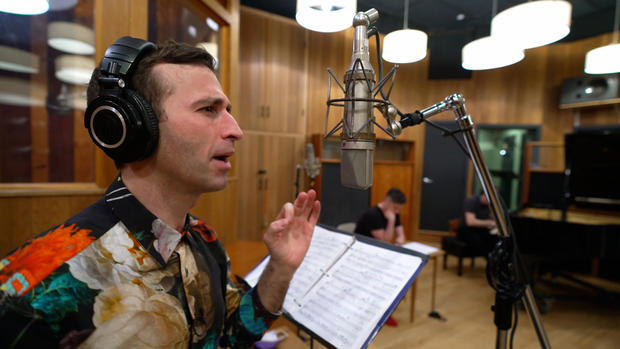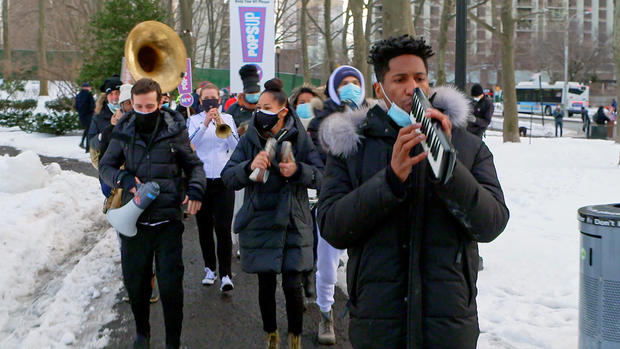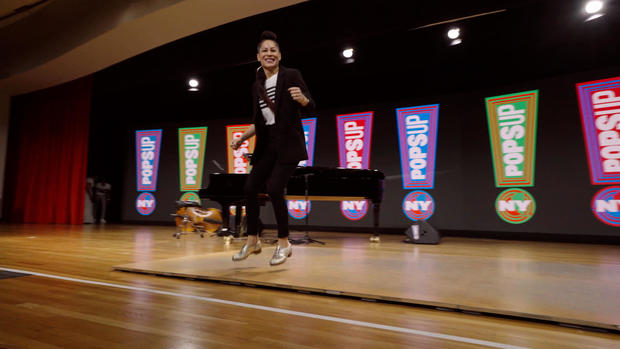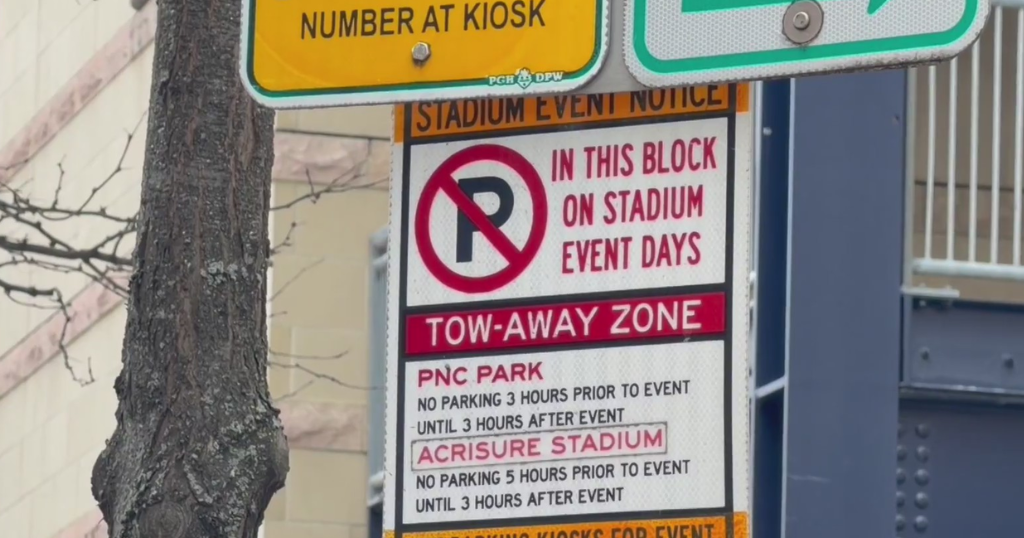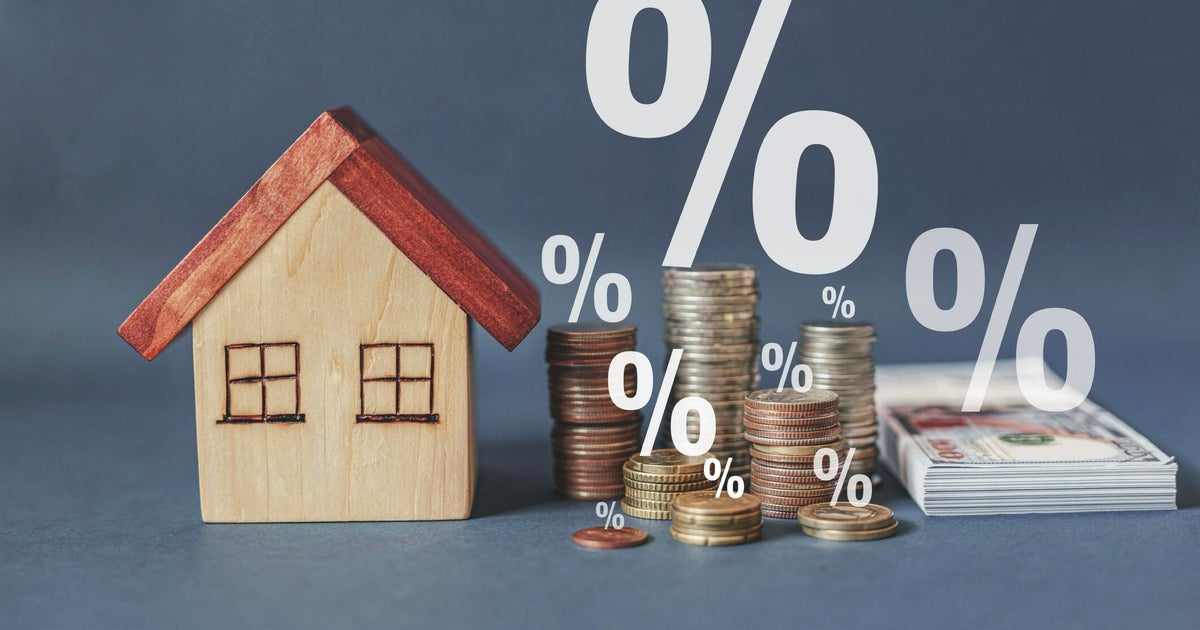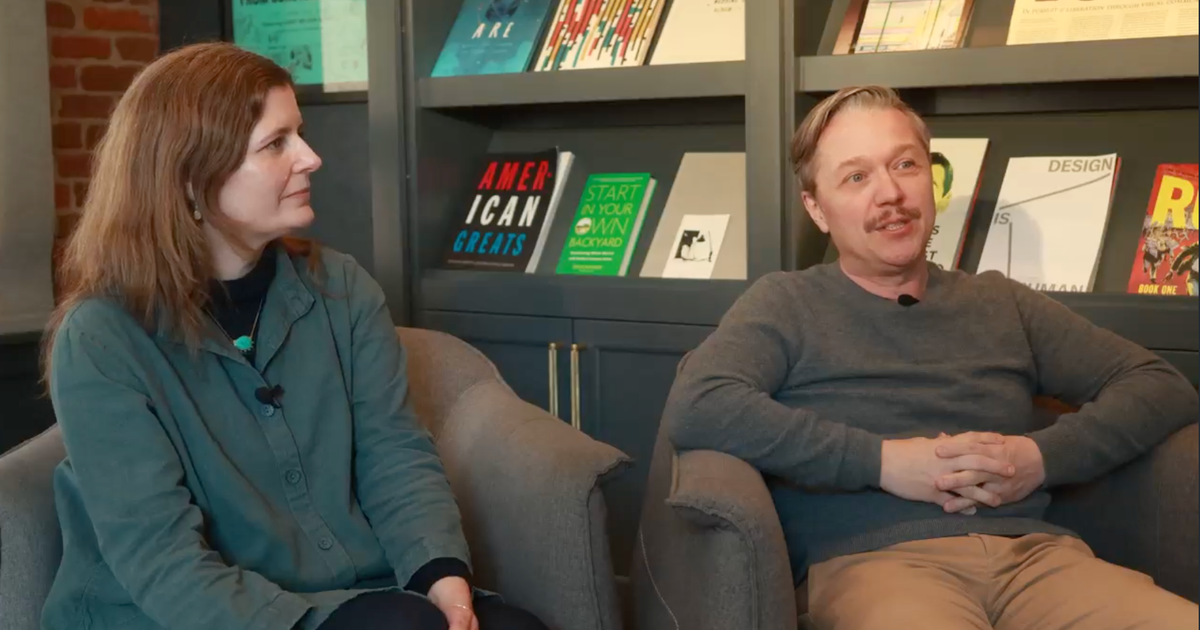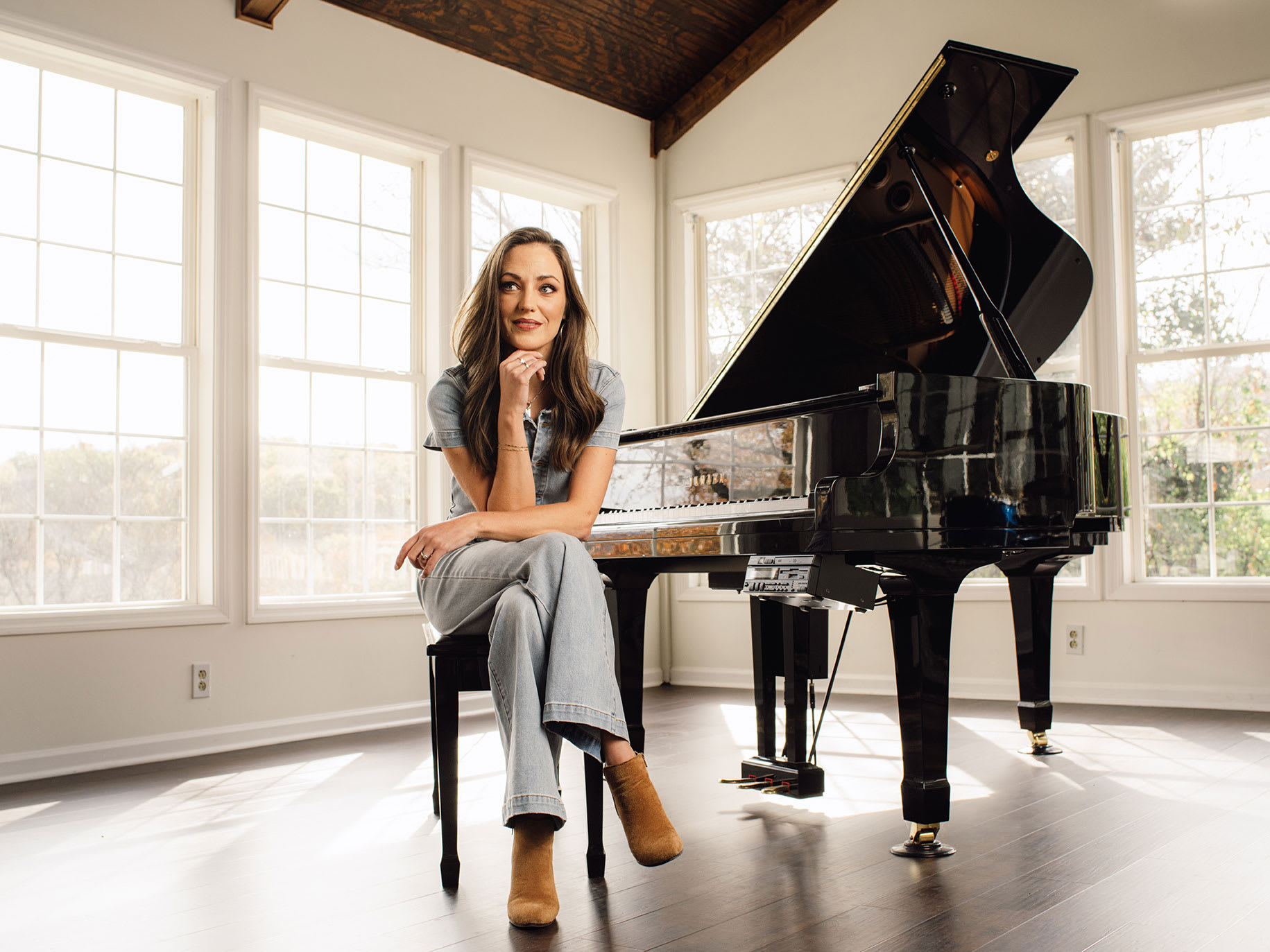Improvising through the pandemic, the show goes on for New York's performing artists
Giving new zest to the term showstopper, the pandemic sure did a number on the performing arts — and just when we needed them most. Live music, dance and theater help us to process collective trauma, to make sense of loss and fear. But the same intimacy and shared experience that make the performing arts so special have made them singularly awful for COVID-times. There is an economic toll to putting the performing arts on mute… especially in New York, where they bring in billions and where Broadway alone sells more tickets than all the city's pro sports teams combined. But what about the loss in value that can't be measured? As show business reimagines its role post-COVID in the city that never sleeps, we consulted three dazzling talents at the top of their games, doing their best to improvise.
Meet Ayodele Casel. Originally from the Bronx, she's danced her way onto the biggest stages in the world. Here she is at New York's Joyce Theater performing for an online audience.
Ayodele Casel: Tap dancing is, to me, a genius musical way of moving one's feet and body. It's expression. It's joy. It's resistance. I think it's magical.
Jon Wertheim: What's it like without an audience? I mean, how does that compare to the real thing?
Ayodele Casel: Well, it doesn't compare to the real thing.
Next, allow us to introduce Anthony Roth Costanzo. A countertenor whose talent is matched by his range, up until the pandemic, he was starring in the Metropolitan Opera's sold out production of Akhnaten.
Anthony Roth Costanzo: I was biking by the Met the other day and I stopped my bike. And I closed my eyes. And I thought, "What does it smell like on that stage? What does it feel like? Can you remember?" It is such an incredible feeling, stepping onto the stage of the Met, looking out at 3,800 people.
And finally, ladies and gentlemen, Nathan Lane. We asked the veteran Broadway actor how he's stayed limber during the pandemic.
Nathan Lane: I haven't. I'm-- I'm-- I'm like everyone-- I'm sitting home watching Netflix, watching "Money Heist." Thinking wow. It's so Spanish. Everyone -- It's like a telenovela during a big heist. It's crazy. But it's so addictive. I love Netflix. But, you know, enough is enough. We've missed that connection. It's about connection. The human connection.
That connection between performer and audience stopped cold here last March 12th, back when COVID was still in Act 1. And it hasn't resumed. Those neon lights on Broadway—still out. Practice all you want, you can't get to Carnegie Hall. For more than a year now, there's been no business in show-business, devastating to the nearly 100,000 New Yorkers who make their living this way - onstage, backstage and front of house. Adam Krauthamer heads the city's union of 7,000 musicians.
Jon Wertheim: What's the unemployment rate among your members right now?
Adam Krauthamer: So right now it's 95%.
Jon Wertheim: Unemployment?
Adam Krauthamer: 95% unemployment.
Adam Krauthamer: I think for people who work in the arts, we were worried that we were losing jobs. Right? But my-- my fear is that we were losing careers.
Jon Wertheim: Did you see that firsthand?
Adam Krauthamer: I've had members sell their homes I've had members sell instruments.
There is precedent for helping artists in times of crisis. Coming out of the Great Depression, part of the New Deal funded projects in music, theater and art. In this crisis, performers have largely had to go it alone. This, in an industry not exactly known for a stable business model. Even in the best of times, a show won't break even unless audiences fill at least 80 percent of the seats.
Jon Wertheim: How many performances have been cancelled for you since the start of COVID?
Anthony Roth Costanzo: I would say at least a hundred if not 150. I mean, the checks stopped. And-- you-- you saw quite a stark contrast between selling out-- in a title role at the Met and being on unemployment just a matter of months later.
Ayodele Casel also worried her career would lose momentum - permanently.
Jon Wertheim: What happened?
Ayodele Casel: Silence happened. (LAUGH) Actually, worse than silence, it was the-- the phone calls saying, you know, "We-- we're canceling. We're canceling. We're canceling."
Jon Wertheim: This is income too, I'm guessing.
Ayodele Casel: this is 30, 35, 40, $45,000 getting canceled. You know, that might not be a lot for other folks. But, like, for an artist, that's a lot of money to go out the window.
Ayodele Casel: And it almost took me down. I, for a quick second-- thought, maybe I've had a good run.
Jon Wertheim: You went to that spot of--
Ayodele Casel: Oh I went to-- oh yeah there was, like, a good--month or two where I was just like, "I think--" seriously considering not-- not doing this in this way anymore. And just when I thought that, I get the call for, you know, to do NY PopsUp.
A creative plan for the creative class… NY PopsUp, a state program backed by $6 million, is a sort of cultural band-aid, aimed at reminding the public about the importance—and joy—of live arts. Like a pop up store, the arts version is temporary, mobile, and socially distanced— with an eclectic mix of performers emerging in unlikely places. The sanitized setting for Opening Day in February: Manhattan's big convention facility, a thank you to those overseeing vaccinations.
Ayodele Casel: It was surreal. I'm not gonna lie. It was so surreal because when I-- it's like-- I remember when I stepped on stage.
Ayodele Casel: there was that moment of, like, you know, applause.
Ayodele Casel: there's nothing like it I just felt like, "Oh we're back." (LAUGH) You know, just like that. (SNAP)
After the stage show, Jon Batiste—musician and bandleader of CBS' "The Late Show with Stephen Colbert"—pied-pipered the rag-tag troupe through the streets of Brooklyn.
Jon Wertheim: You have this delicate instrument. And then you've got a bullhorn rendering it.
Anthony Roth Costanzo: (LAUGH) We're over being precious with opera or even these instruments. I think it's about-- now it's about the kind of fervor that exists. And after all, opera singing is just glorified screaming. So.
In March, Ayodele Casel got some rehearsal time with fellow dancers - albeit in the frigid garage of her New Jersey home.
Ayodele Casel: I hadn't seen my friends in so long. I could cry thinking about it. But-- I-- I think I underestimated, you know-- how much I missed them. You know, because we would stay in touch over the phone. But it's one thing to then be in the same space. That was-- really inspiring to me.
She took the show on the road with NY PopsUp and went back to her old stomping grounds in the Bronx, as well as Brooklyn and Queens turning up in museum lobbies to the happy surprise of visitors.
Since then, New York has loosened some restrictions on live performance. Audiences of up to 150 people can now gather indoors. And cultural institutions are trying to figure out how to make this work. We were there when the New York Philharmonic was reunited for the first time in a year with its conductor Jaap van Zweden. A smaller orchestra, socially distanced and masked, rehearsed for a virtual concert.
Jaap van Zweden: Being a musician is not-- with all respect, it's not a job. It is something you live for all your life. And if that is being taken away-- that is not easy for us. And so we are extremely happy that we can be back on stage.
But pop ups and streaming gigs are baby steps back to work… for only a fraction of New York's performing artists. The larger question looms: when can theaters safely pack them in again?
In early April, the venerable St James Theater was the site of Broadway's soft re-open. The audience, proof of a negative COVID test required, sat apart yet together, one day only, to watch Nathan Lane on a bare-bones set. He performed a monologue about, fittingly, a theater lover exiled from Broadway.
Jon Wertheim: Was there special protocol you had to go through as a performer today? Special COVID protocol?
Nathan Lane: Yes. They hosed me down. I've been tested. I've been tested so many times.
Jon Wertheim: Were there moments today when you were up there and you sort of said, "You know what? This-- all right."
Nathan Lane: No. I was-- I'll tell ya honestly. I was-- I was, like, terrified.
Jon Wertheim: Why?
Nathan Lane: Well, because there wasn't any real rehearsal. It was a first performance. (LAUGH)
Jon Wertheim: To-- to the--
Nathan Lane: Now if you catch me tomorrow night. (LAUGH) You want to c-- come by the house, I'll try it again.
In her lost year, Ayodele Casel -- like so many artists -- has been thinking about not just how to bounce back but about how to lunge forward.
Ayodele Casel: I would like to see what gets presented from here on in to reflect-- what artists look like out in the world. That there are more Black people and more Latino people and more Asian people being represented-- creatively- not just on stage but just everywhere around and behind and in front and in back. Just all over.
Anthony Roth Costanzo has used this quiet period to make an album - a style mash-up with cabaret singer Justin Vivian Bond - and it's also got him thinking he may not want to go back to the way things were.
Anthony Roth Costanzo: We've decimated the arts. And we have an opportunity to rebuild them.
Jon Wertheim: Open doors, literally?
Anthony Roth Costanzo: Literally. And not only open doors, to rebuild the doorway and install a new door.
Jon Wertheim: Specifically, what are we talking about?
Anthony Roth Costanzo: Let's reinvent the concert-going ritual. Let's put it on a pickup truck and take it places, go out of the concert hall, out of the opera house, and create new experiences.
As Broadway fashions its restaging, there's already been a spasm of, well, drama.
On Thursday, the theater community rallied to demand accountability. They targeted producer Scott Rudin, a Broadway mogul—and force behind NY PopsUp—who announced he was stepping back after reports of abusive behavior.
But the show must, of course, go on. And Nathan Lane has one small note.
Jon Wertheim: Anything you'd like to see not come back?
Nathan Lane: "Cats." "Cats." We don't need (LAUGH) "Cats." Enough with "Cats." They revived it. W-- w-- you know, we get the idea-- "Cats."
"Cats" notwithstanding, Broadway - and New York's main stages - are heading for a fall reopening. There's no precise date on the calendar and shows will need time to ramp up. There will be some lightbulbs to change and some sets to dust off and perhaps a new appreciation, not just for the dollars and cents, but for the spiritual value in the performing arts.
Nathan Lane: It's more than just-- a night out. (LAUGH) It's-- you know, it's what the character says in the piece.
Lane's monologue: I love theater. I can't explain it. It's just when I have tickets to a show, it lifts my whole day. It's like a date with someone who might be wonderful…
Nathan Lane: Or might be boring. Or might change my life forever." You know? I know.
Jon Wertheim: So what's...
Nathan Lane: I thought for sure that was the end of the interview. Didn't you?
Jon Wertheim: No. One more.
Nathan Lane: Didn't I-- didn't I give him, like, the best ending to this thing? (LAUGH).
Produced by Nathalie Sommer and Kaylee Tully. Broadcast associate, Elizabeth Germino. Edited by Sean Kelly.

